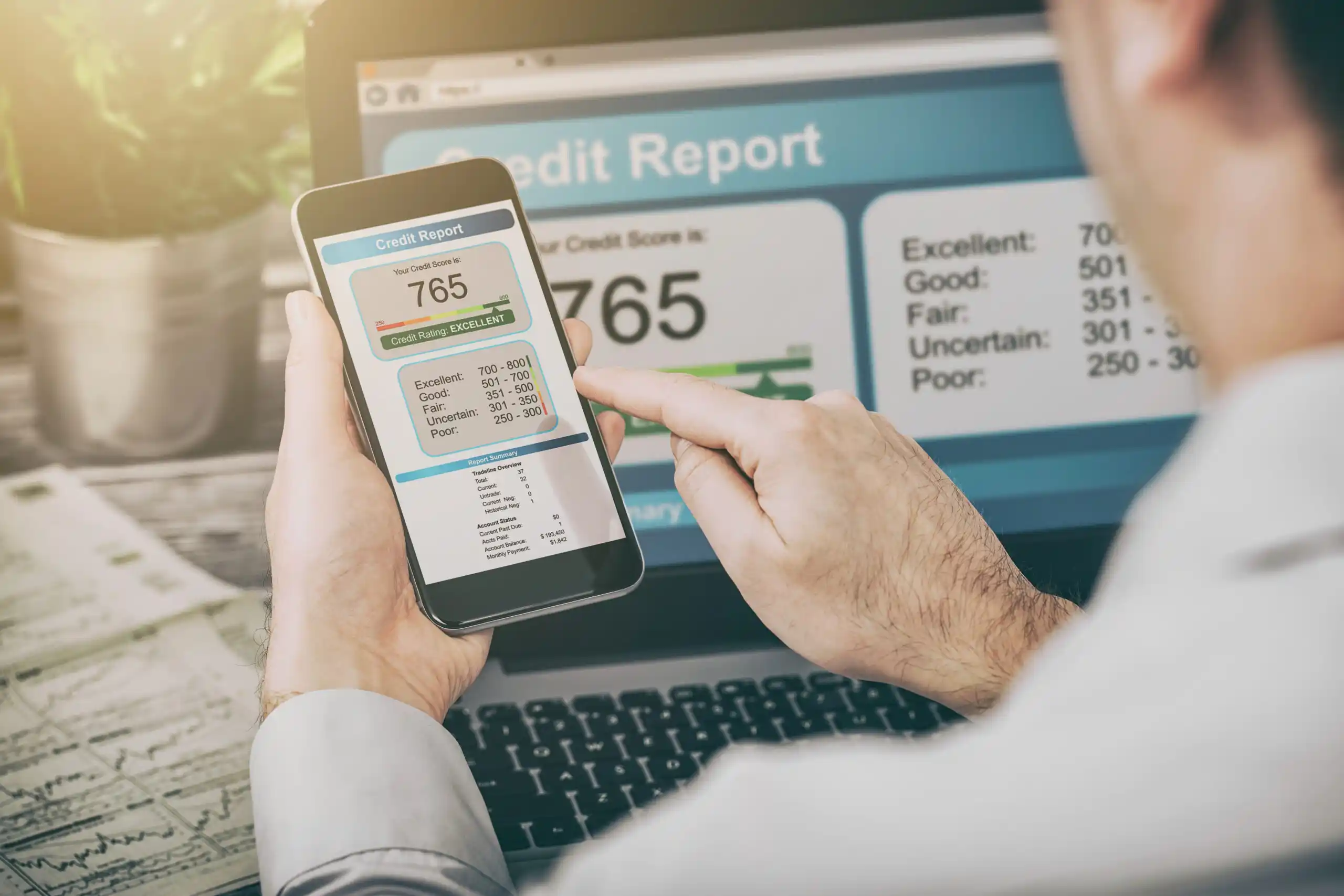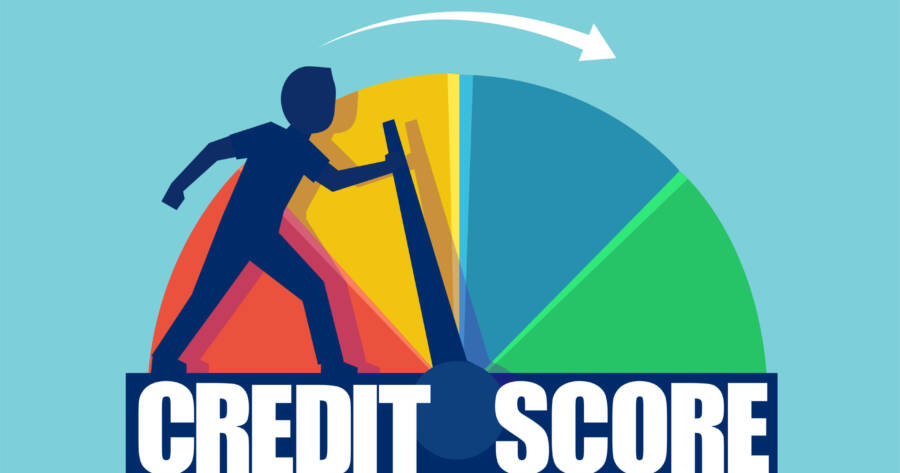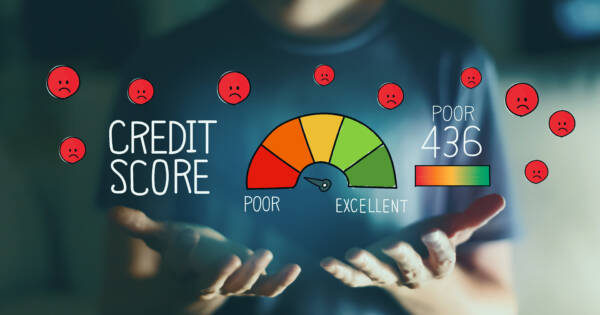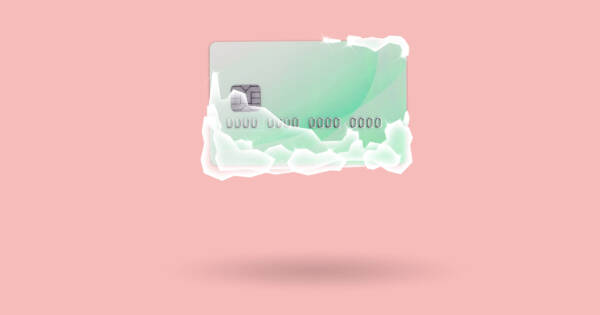Knowing your credit score is one thing. Understanding exactly how it’s calculated is another thing altogether. If you’re curious about how your credit score is determined, you’ve come to the right place. We’ll show you exactly how companies such as Equifax, Experian, and TransUnion come up with those numbers — you know, the ones that determine if and what you qualify for when it comes to needing credit.
Besides giving you the formula these companies use to come up with your credit score, we’ll also look at a few ways you can improve it. By the end of this article, you’ll know not only how your credit score is calculated, but also how you can best keep your score as high as possible.
A Note About Credit Scores
Before we get into specifics, there are a few things you’ll want to understand about your credit score. The first is that you don’t have one single credit score. Many folks might find that disconcerting. After all, it’s called your credit score, not scores. There’s usually no plural mentioned. However, the difference lies in how each credit company does their calculations.
Most of the time they’ll use the FICO model or the VantageScore model, which is newer. Know that “each model uses its own proprietary calculations.” Despite the secretive nature, both still “value similar behaviors when calculating your score, even if they weigh those factors differently.” You could theoretically have two different scores, stemming from one single behavior pattern. Regardless, your scores should still be fairly close across the board.
Speaking of scores, let’s break it down. Poor credit scores are basically anything below a 579, according to Bank of America’s Better Money Habits. Your score is considered fair when it’s between 580 and 669. If you land anywhere between 670 and 739, your credit ranks “good.” Those above 740 and up to 799 are labeled “very good.” Credit scores above 800 are “exceptional.” But don’t stress if you’re not there, because the average score is about 700.
Checking your credit score is a healthy habit, but don’t overdo it. Many banks now include easy ways to check your credit score on their mobile apps. Just remember that this may or may not be the score lenders, utility companies, landlords, or even cell phone companies see when you apply for their services. Credit card companies also allow you free access to your credit report. Note that you’re eligible to check your credit for free from the three main credit bureaus — and without deducting any points from it — once every 12 months.
How Your Credit Score is Calculated
Now let’s get down to the nitty-gritty. How exactly do companies like Equifax calculate your credit score? Here’s the approximate breakdown that most major credit score formulas use.
- The largest share, or 35%, of your credit score is payment history.
- About one-third, or 30%, of the calculation relies on how much you owe.
- Length of credit history accounts for 15%.
- One-tenth, or 10% of the calculation depends on your credit mix.
- The final 10% comes from your new credit.
If you want to try calculating your score, check out this credit score calculator. Remember that while these percentages stay relatively the same across the board, the weight each company places on any given category changes.
Credit Score Importance: Beyond Just the Numbers
Now that you’ve got all the ingredients that go into your credit score, let’s take a closer look at some of those categories.
First up is payment history. According to CNBC, this factor is “extremely influential” when using the VantageScore model. After all, it’s the best way lenders can gauge how risky it is to lend you money. The more often you pay your bills on-time, the better score you’re typically able to receive.
This goes for length of credit history too — the longer the better. But lenders know that for many people, it’s difficult to get a credit history if no one will lend you money. This is why it ranks lower than how much you owe.
Owing a lot of money won’t necessarily bring down your credit score on its own. However, your credit utilization ratio — that is, “the percentage of available credit that you actually use”— affects this characteristic. Having a credit utilization ratio below 30% lends itself to lifting your score. Or at least maintaining it. This is why it’s a good idea to keep that credit card account open, even if its paid off and barely used.
Finally, we have credit mix and new credit. Having a lot of new credit will bring the average age of your length of credit down. So choose wisely before you open new accounts. At the same time, having a mix of credit types works in your favor. Credit mix describes “the different types of credit accounts you have, including revolving debt (such as credit cards) and installment loans (such as mortgages, home equity loans, auto loans, student loans and personal loans).”
You don’t necessarily need all these types of credit, though. In fact, having too much debt across a large number of accounts isn’t good for your credit score either. But having a nice mix shows you’re able to conquer different debts across the board.
Ways to Maintain and/or Increase Your Credit Score
Knowing how your credit score is calculated can be useful, but how can you put all this information into action? Here’s how you can stack the odds in your favor, so those credit scores add up to new opportunities and more financial freedom.
- Soft inquiries impact your credit score less than hard inquiries. If you plan on qualifying for a loan, only submit soft inquiries if you’re absolutely sure about moving forward. Sometimes this requires a hard inquiry. According to Equifax, though, “if you are shopping for a new auto or mortgage loan or a new utility provider, the multiple inquiries are generally counted as one inquiry for a given period of time,” typically anywhere from 14-to-45 days.
- Budgets are a great way to make sure you can pay your credit card on time. Get into the habit of mentally setting aside any amounts you put on your credit card, so that they’re accounted for when you go to pay bills.
- Paying off your credit card before the due date will help your statement show a $0 balance. Then, when the credit card companies report your balance to the credit bureaus, you’ll be in good standing.
- Take advantage of credit card offers only when they make sense for you. Look for cards with $0 annual fees, generous rewards for purchases you already make, and any other perks that might benefit you. Using credit cards can actually be great, as long as you do it smartly.
Credit can’t be improved with “quick fixes.” However, taking steps in the right direction will help you gain the momentum you need to keep moving forward.
The Truth Behind the Score
You’ve read about how your credit score is calculated and what you can do to make it better, but what does all that mean in the real world? Credit scores aren’t a reflection of how much money you make or even where you’re at in life. They’re simply an evaluation tool used by lenders — better credit scores help you achieve better interest rates.
Generally speaking, a better credit score comes hand-in-hand with knowing how to manage your money and make the most of what you’ve got. Everyone gets a credit score but it’s up to you to maintain it. Take hold of your credit today and steer yourself toward financial freedom.
 Shutterstock
Shutterstock







